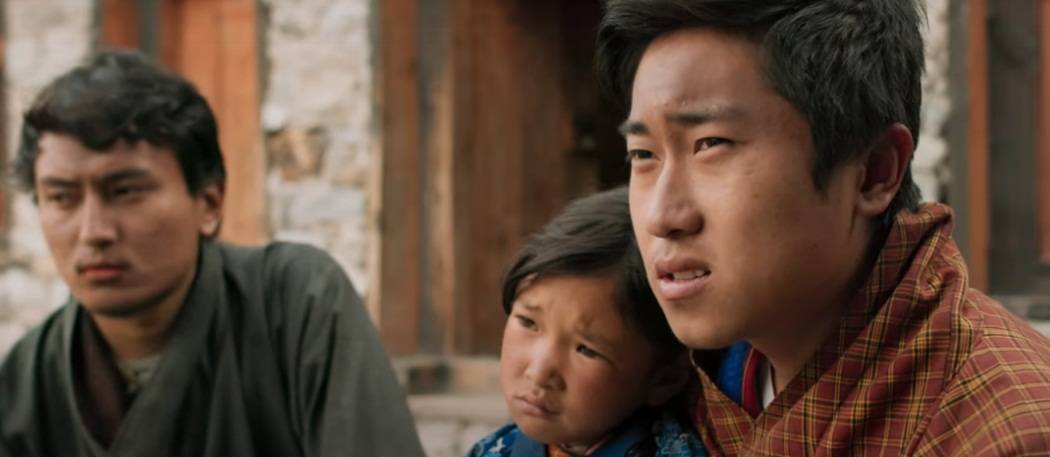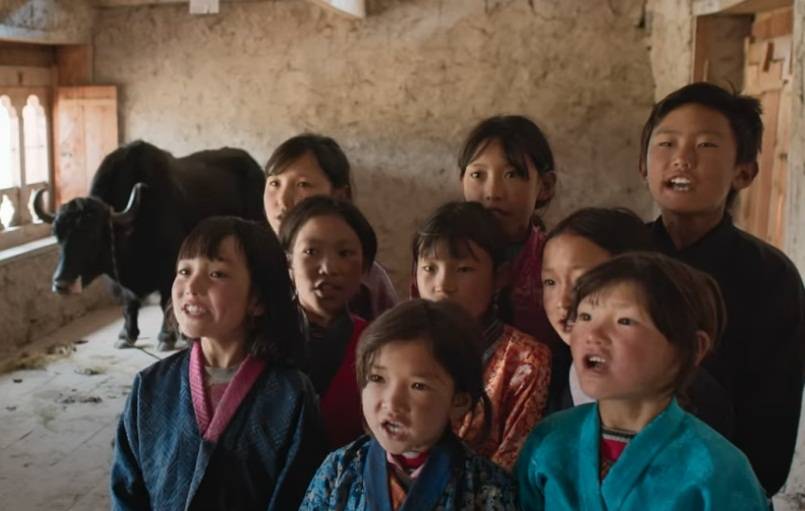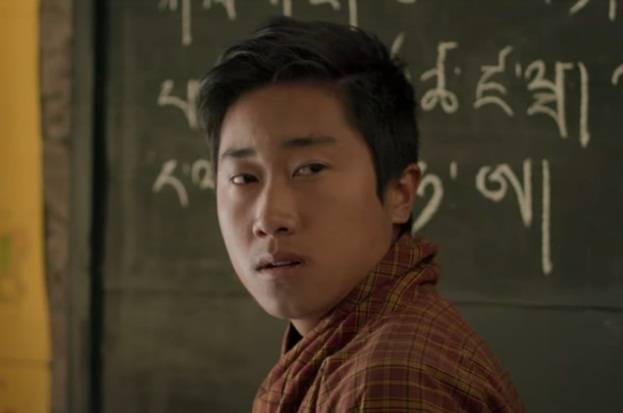Along the way, the debut film of its director, Pawo Chonying Dorji, won the Audience Choice Award for Best Feature Film and the Best of the Fest at the 2020 Palm Springs International Film Festival in the US…reports Sourish Bhattacharyya
Even by the challenging standards of Bhutan, the landlocked Himalayan nation famous for its gorgeous topography, Lunane is remote.
It’s certainly not the place for a young, aspiring schoolteacher, growing up in Bhutan and nurturing the dream of migrating to Australia, to relocate for his mandatory year of service before getting his degree.
It is the story of this city-slicker, music-loving teacher, Ugyen Dorji, played with conviction by Sherab Dorji in ‘Lunana: A Yak in the Classroom’, which has become the second film from Bhutan to be nominated for the Best International Feature Film category in the 94th Academy Awards, which will be held on March 27 at the Dolby Theatre, Hollywood.
This inspirational, eye-moistening film, shot with the help of solar-powered batteries at one of the most inhospitable locations in the world, was rejected by the Academy of Motion Picture Arts and Sciences on a technicality last year, but Bhutan’s Ministry of Information and Communications persisted with it and its efforts have paid off.
Along the way, the debut film of its director, Pawo Chonying Dorji, won the Audience Choice Award for Best Feature Film and the Best of the Fest at the 2020 Palm Springs International Film Festival in the US.
At the 26th Film Festival della Lessinia in Italy, ‘Lunane’ was awarded the Lessinia d’Oro Award for Best Film and its lead actor, Sherab Dorji, brought home the Best Actor award from the Saint-Jean-de-Luz international film festival in France.
Now, it is up against this awards season’s runaway hit, the Japanese film ‘Drive My Car’ based on Haruki Murakami’s story, Italy’s ‘The Hand of God’ (another festival-circuit favourite showing on Netflix), Denmark’s ‘Flee’ and Norway’s ‘The Worst Person in the World’.
Will ‘Lunane’ and the travails of Ugyen Dorji as he accepts his situation and starts teaching children in a classroom they share with a yak, whose dung lights up the hamlet’s fires, tug at the heartstrings of the AMPAS members and make them cast their votes in the film’s favour? Or the earnestness of the village headman and the untutored performances of the angelic children swing their opinion?
‘Lunana: A Yak In The Classroom’ is the second Oscar entry from Bhutan, 23 years after the Buddhist lama Khyentse Norbu’s Tibetan-language drama, ‘The Cup’, made it to the long list in 1999. But it is the first film from Bhutan to be nominated for Best International Feature Film.
Commenting on the nomination, the film’s director, Pawo Chonying Dorji, said in an interview with ‘Variety’: “The shortlisting has meant so much because it’s a historic moment for our little Himalayan kingdom. It has captivated the whole country, from city dwellers to yak herders in the glacial mountains, from schoolchildren to Buddhist monks in isolated monasteries.”
What does the nomination mean for his nation? Dorji said in his ‘Variety’ interview: “They have all expressed how joyful they are in knowing that a story about our culture and people has been recognised by the world.”
Recalling how he went about his directorial debut, Dorji added: “I made this film with a crew who are mostly all amateurs, with a cast of yak herders who hadn’t even seen the world beyond their village. We shot the film in one of the most remote human settlements in the world using only solar energy to power our production.”



He concluded with a telling comment: “I think the shortlisting is a celebration of the possibilities of creativity and the art of filmmaking.” Anyone who sees the film will agree with the director.
It is a celebration of not only a heart-warming story set in a glacial, inhospitable setting, but also the ability of the human spirit to triumph over the most formidable challenges that life may throw at it.
ALSO READ-Vignesh pins Oscar hopes on ‘Pebbles’

Leave a Reply